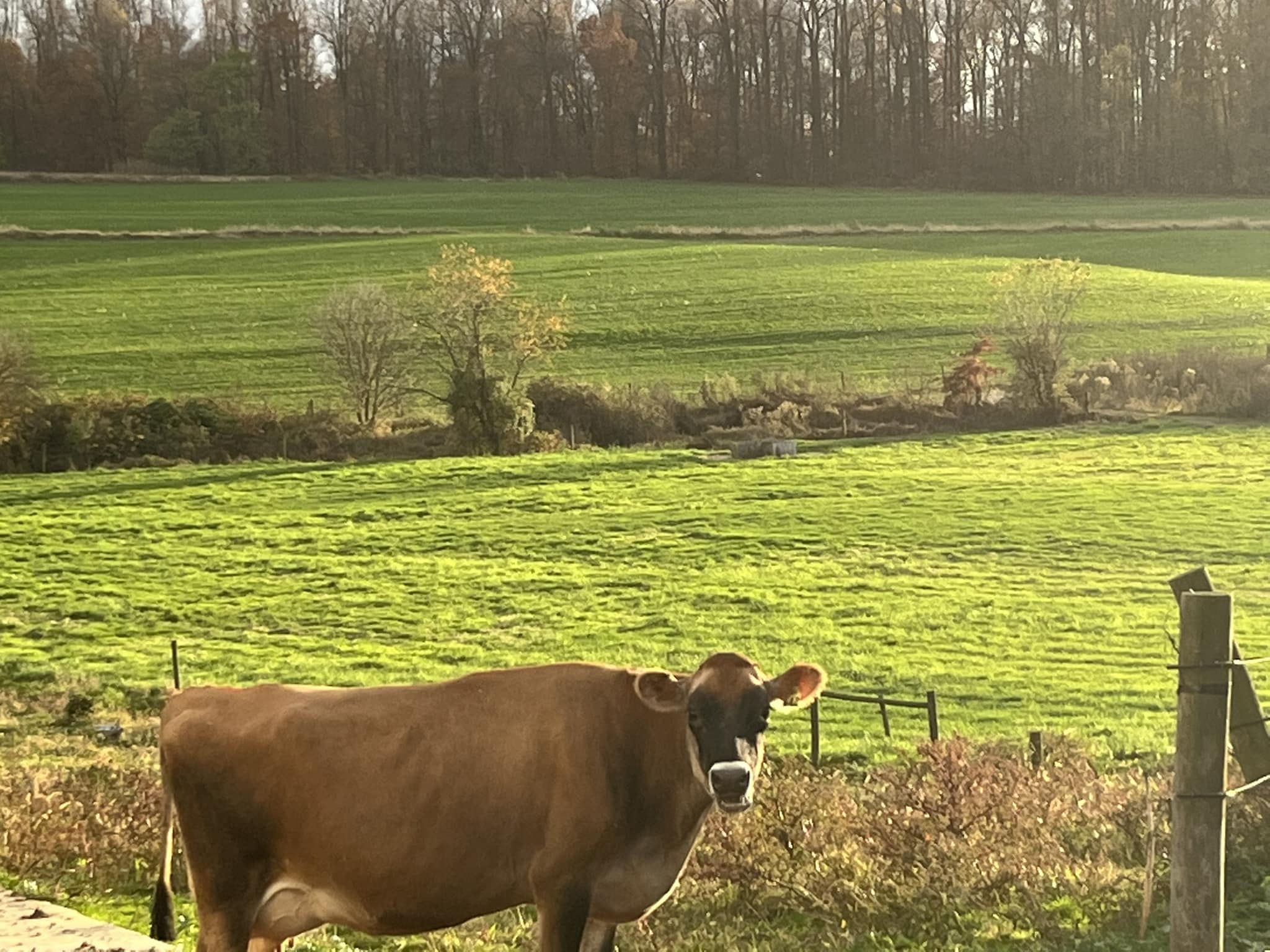A pair of family farms in the Chesapeake Bay watershed, each impressive in their own right, has been nationally recognized with the 2022 Leopold Conservation Award. The Crothers family’s dairy farm Long Green Farm in northeastern Maryland and Flinchbaugh’s Orchard & Farm in York County, Pennsylvania, just over the Maryland line, are equally committed to caring for the environment.
The Crother family founded Long Green Farm in 1759, in what is now Rising Sun, Maryland. Caleb and Alice, its current stewards, represent the eighth generation to farm the land near the mouth of the Susquehanna River, with their three active daughters making up the ninth.
Long Green is a 560-acre dairy farm with approximately 330 cows. Caleb’s grandfather enrolled in the Reagan-era Conservation Reserve Program, which pays farms a rental fee to improve water quality while providing wildlife habitat. The generations to follow have kept the conservation tradition going.
The Crothers plan to keep their dairy herd at its current size and they use conservation practices to make the farm sustainable. To raise their calves and heifers on site, they grow all of their food—a combination of corn, soybeans, triticale, rye, and grass hay—using no-till conservation practices on 425 acres of their land. On the fields, they use precision manure application to minimize commercial fertilizer and winter cover crops to protect and build soil, catch rainwater efficiently and add nutrients.
To control runoff from heavy-use livestock areas, the Crothers have built a livestock barn with manure storage. They are exploring options for a methane digester to generate electricity and a sand separator to recycle sand used as livestock bedding. Clean rainwater from its roof and runoff from terraces flow to grassed waterways without creating flooding or erosion.
As busy as all five Crothers are with livestock and crops, they still find time to volunteer with dairy organizations and community groups. The Crothers have placed 535 of Long Green Farms’ acres into permanent protection with the Cecil Land Trust. They and their daughters host an annual Halloween party for the local farm community. As farmers, they cite conserving the environment among their greatest callings.
Meanwhile, Flinchbaugh’s Orchard & Farm, in York County, Pennsylvania, offers a retail farm market, picnic pavilion, and seasonal “agri-entertainment” events that attract thousands of visitors. Three generations of Flinchbaughs educate their guests on how conservation benefits their food, water, and environment.
Siblings Mike Flinchbaugh, Andrew Flinchbaugh, and Julie Keene use cover crops, grass buffers, no-till practices, and precision agriculture to manage their crop fields and orchards. They maintain grass buffers along creeks and grassed alleyways between rows of fruit trees to absorb runoff, improve water quality, and provide bird and wildlife habitat.
In partnership with the USDA Natural Resources Conservation Service, they conserve water, soil, and energy resources on their farm and on leased cropland, growing 2,000 acres of corn, soybeans, wheat, hay and milo, and another 52 acres of specialty crops: fruit, pumpkins, tomatoes, and flowers. The Flinchbaughs employ Integrated Pest Management on their specialty crops by combining biological, physical, and chemical tools to minimize pesticide risks.
At the county-owned Horn Farm, they lease land and host students in its Center for Agricultural Education. Mike, Andrew, and Julie each serve on local and regional committees that promote agricultural conservation. Their combined efforts have established Flinchbaugh’s Orchard & Farm as a valuable community hub.
-John Page Williams




